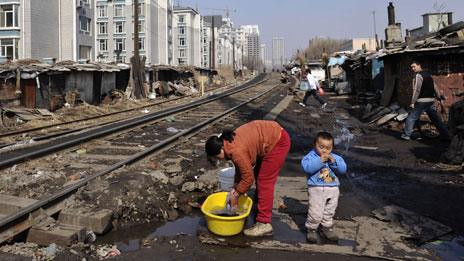China Long March film: US glamour model's role draws ire
- Published
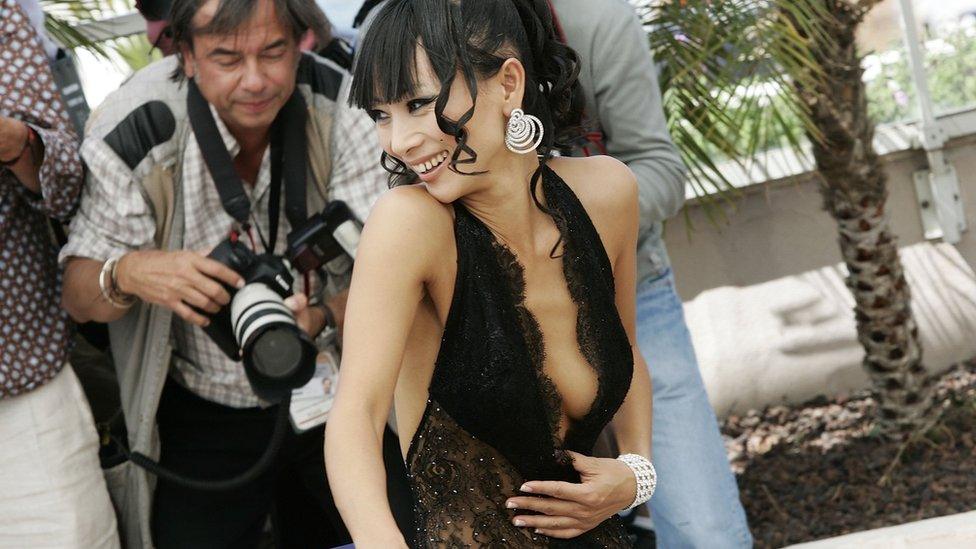
Online users were riled by model Bai Ling's appearance in a historical documentary
China's state broadcaster has touched a raw nerve among its viewers by casting an actress and glamour model seen as "anti-China" in a documentary about the Long March.
The popular Sina Weibo microblog was filled with outrage at CCTV's casting of Chinese-American Bai Ling. Many argued that her past criticism of China and roles in films seen as unflattering to the country made her an unsuitable choice.
The documentary was one of many marking the 80th anniversary of the Long March, the arduous trek by Communists battling Nationalist forces in 1934-35 that occupies a central place in Communist Party annals.
Who is Bai?
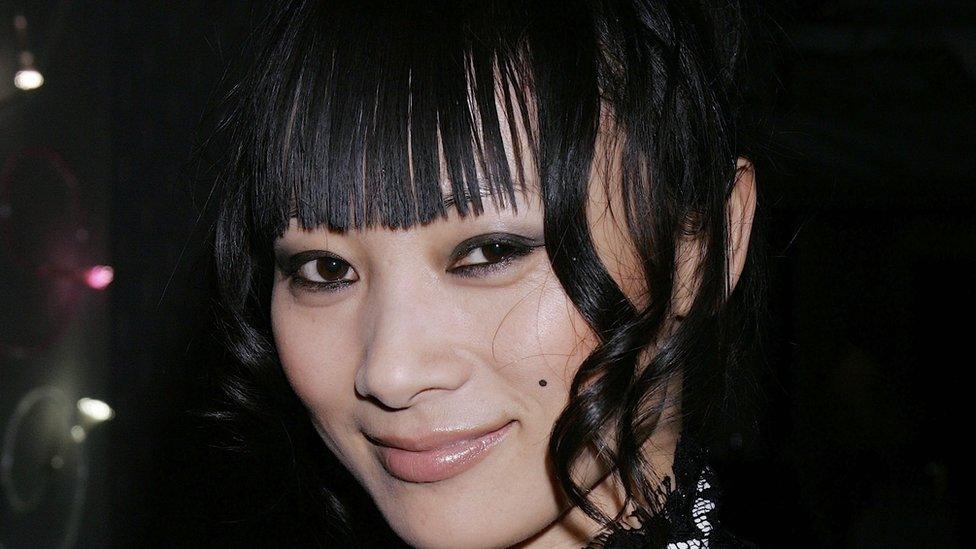
Bai Ling is a Chinese-born actress and glamour model who moved to the US in 1991 and mainly appears in American films.
Much of the Chinese ire against her derives from her criticism of her early experience as a People's Liberation Army (PLA) art troupe member, where she says she was repeatedly sexually abused and at one point forced to have an abortion.
Chinese social media users also take a dim view of her appearance in the 1997 thriller Red Corner, in which she played a lawyer uncovering conspiracies and corruption among senior Chinese leaders. The film was banned in mainland China.
Why do Bai and the Long March not mix for many?
Bai Ling appeared in an episode of the eight-part series, Long March Shakes the World, that aired on 22 October.
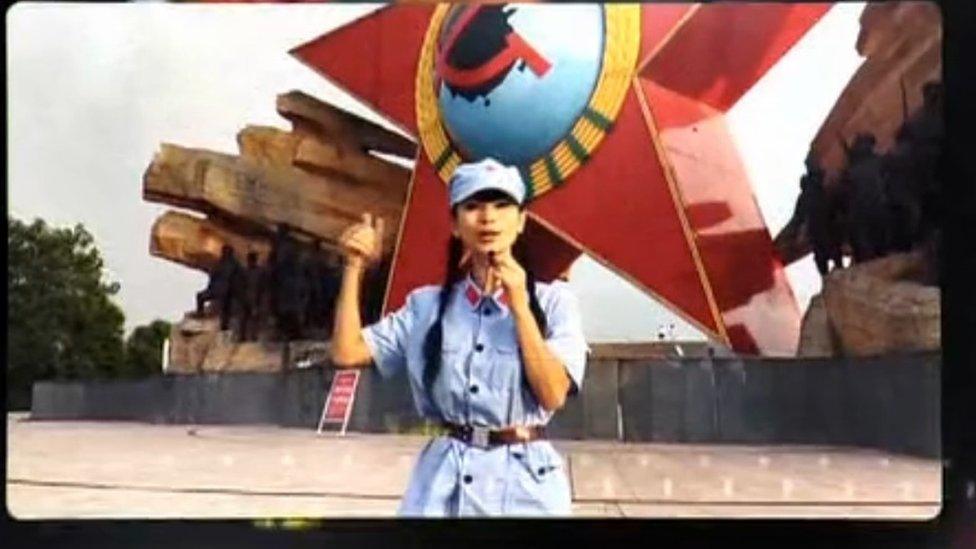
Bai Ling dressed in a red army uniform for her appearance in the documentary
The anger was exacerbated by a series of promotional photographs of Bai wearing a historical Red Army marcher's uniform taken at key points along the Long March route.
One user, "Du Jianguo", with more than 180,000 Weibo followers, called it "unbelievable" that CCTV had cast Bai, and said the pictures, far from being a "promotion for the Long March", were "nothing less than an insult".
Another user, "Gonghe Xinxi", accused her of "flaunting herself" in the photos rather than being genuinely interested in the historical event.
Some users were blunter, telling her to simply "get out of China".

Some other stories you may have missed:

How did Bai and CCTV respond?
Bai responded by apologising for what she called her previous "prejudices" about China in an open letter published on 25 October
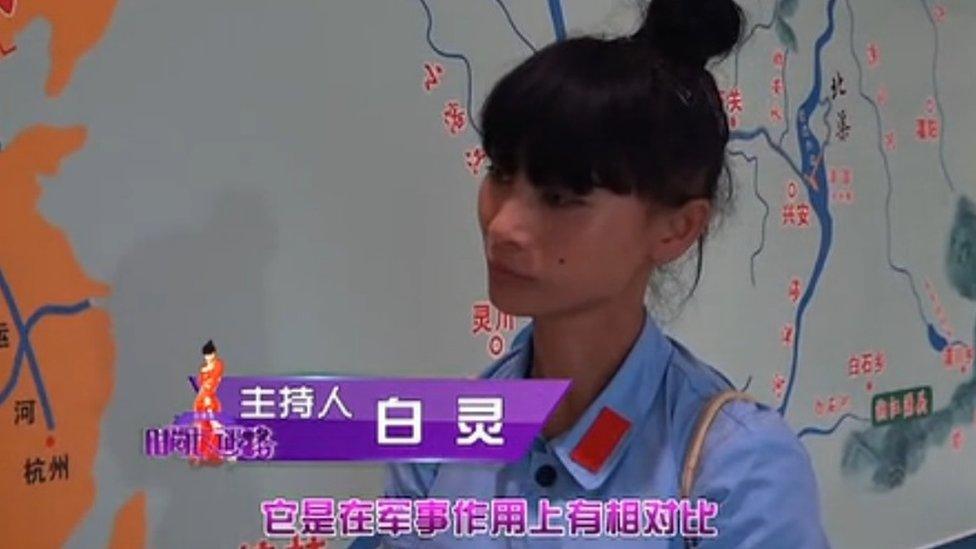
CCTV deleted Bai's episode from its website, but it is still widely available to view on popular TV-streaming services
"I am proud of China, and I am proud of our Long March spirit," the letter read. "I am apologising because of my love... and my passion for our motherland."
CCTV has not officially commented on the furore, but has removed the episode Bai appeared in from its website.
How did the media react?
Writing in the nationalist daily Global Times, commentator Shan Renping described the row as a "lesson" for CCTV, and warned television producers to be "extra prudent when deciding who to cast in their programmes".
Was Bai given special treatment?
Many on social media considered Bai's casting surprising, considering that many celebrities - especially those from Hong Kong - have suffered setbacks in their careers in mainland Chinese after comments deemed politically sensitive.
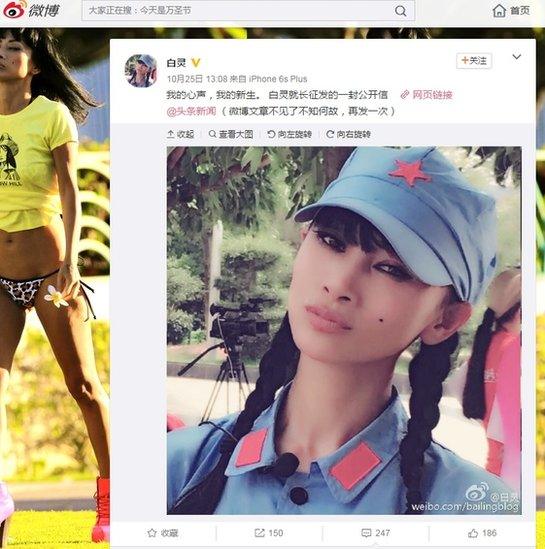
Social media users felt Bai Ling's appearance in the documentary ridiculed the Long March
In June, French cosmetics giant Lancome cancelled a promotional concert featuring Hong Kong singer Denise Ho in response to her support for the 2014 pro-democracy Occupy Central protests in the territory.
Chinese smartphone maker Huawei in January cancelled an advertising contract with singer Chou Tzu-yu after she identified herself as Taiwanese rather than Chinese on a South Korean TV show last year.
The same month, Hong Kong actor Wong He was dropped from a popular mainland reality TV show after he suggested former Chinese Communist leader Zhou Enlai may have been gay.
In June, the Global Times daily gave its support for a strict line on celebrities who "criticise while being fed by the [Communist] party".
BBC Monitoring, external reports and analyses news from TV, radio, web and print media around the world. You can follow BBC Monitoring on Twitter , externaland Facebook, external.
- Published29 July 2019
- Published17 August 2016
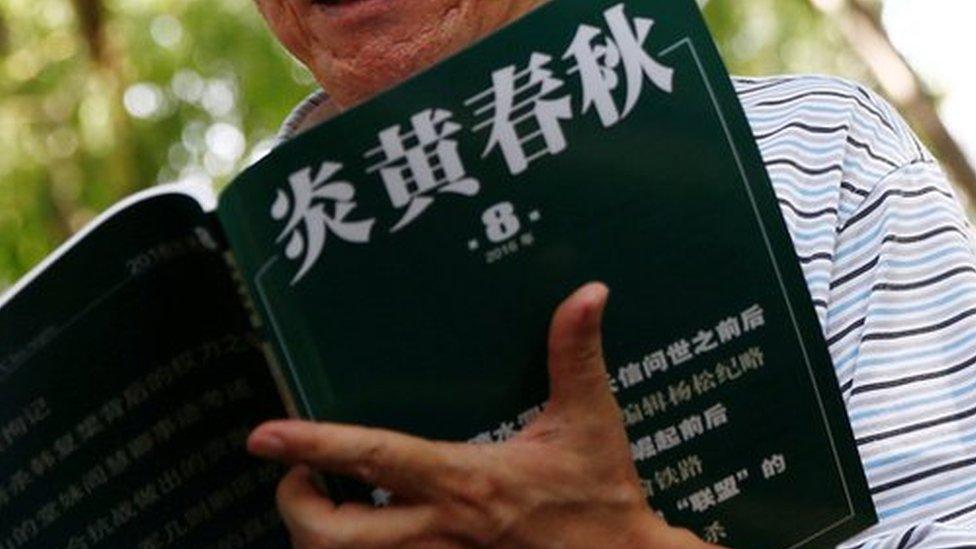
- Published8 June 2012
